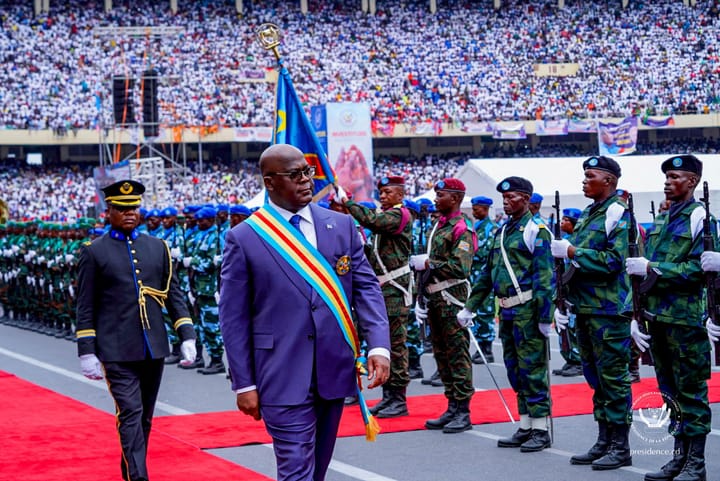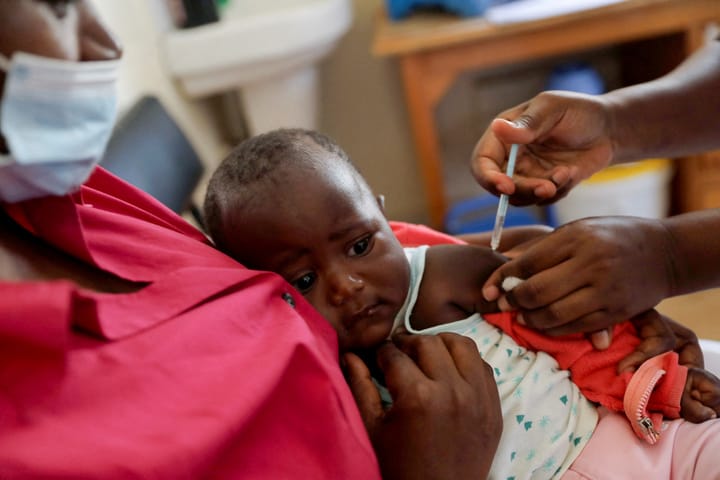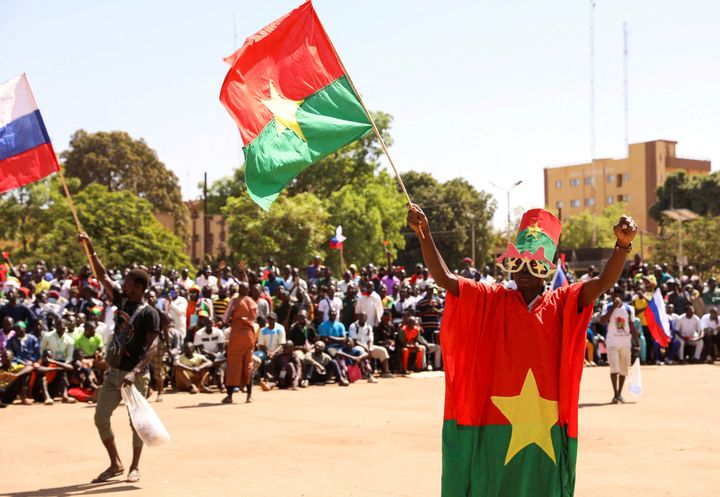“Life is rarely straightforward,” says executive director of African Women Rising Linda Eckerbom Cole

A few minutes every morning is all you need.
Stay up to date on the world's Headlines and Human Stories. It's fun, it's factual, it's fluff-free.

Our Headliners segment often features executives, startup founders and other industry leaders. We are interested in these individuals for their ambition, drive and their unwavering focus on achieving their goals against all odds.
But success isn’t only apparent in the forms of chief executive officers, business owners or the pioneers coming out of Silicon Valley. This week, we were thrilled to interview Linda Eckerbom Cole, founder of the nonprofit organization African Women Rising – an organization that works to provide education, opportunities and resources to women living in the post-conflict areas of Africa.
A visible need
Before the creation of African Women Rising, Cole was living and working in places like Guine Bissau, Angola, Mozambique and Uganda. “When I was 18," she recalled, “I was about to go to university in Sweden, but instead I decided to go and work as a volunteer in Africa.”
She remembers this as a critical moment which led her onto a new path. “I ended up staying for five years and it completely changed my trajectory,” she said. While working on development and humanitarian causes, Cole observed many aid efforts that had little impact on the communities they were supposed to be helping.
This ultimately led to the creation of African Women Rising in 2006.
“During this time I was seeing that most of the people (or a lot of the people), who need help the most were not getting access to it. I was also very frustrated by the fact that a lot of development aid is wasn’t as efficient as it could be,” Cole explained. “You can have a program that runs for two years and then it ends but there’s no real impact. So I decided that I wanted to be part of changing that, and I started an organization.”
As Cole explained in an interview with VoyageLA, her background working with women in conflict areas helped create African Women Rising’s focus. She decided to learn what these women really wanted and needed from an organization.
“I spent a year doing research in Northern Uganda, at a time when the conflict between the Ugandan government and the Lord’s Resistance Army was still ongoing,” Cole said. “I had a lot of ideas but experienced enough to understand this was not about my ideas but what was meaningful to the women.”
African Women Rising became a platform to empower and support these women with its initiatives and programs conceived and run by women from these communities.
Cole explained, “The women in our programs are active participants in defining their own development strategies. We are here to give them that extra push that makes it possible to realize.”
A call to action
The North and South of Uganda has a long history of conflict which was further exacerbated by British colonial rule. Ongoing civil unrest and outright conflict has affected the Ugandan people for more than 30 years. Since the mid-90s, fighting and wartime atrocities have escalated. According to the United Nations Office for the Coordination of Humanitarian Affairs (OCHA), by 2006 an estimated two million people had been displaced, 80% of whom were women and children. Many people had been living in “internally displaced” camps for most, if not all of their lives.
“Everything in these communities were destroyed – schools, health centers, local government structures. Many people lost everything they owned – homes, livestock, any assets,” said Cole. “Over 50,000 children were abducted. It will take a long time to rebuild from this.”
African Women Rising has come a long way in its impact within these communities. From starting out in 2006 with only one staff member and outreach to 150 women, today the organization has a staff of two American members and 230 Ugandans.
“All our staff in Uganda come from the communities where they work,” Cole said. “There are currently just over 20,000 women and men in our programs, 5,000 of them are refugees from South Sudan.”
Cole, in working with these Ugandan women, was able to identify three areas they held to be the most important – access to capital, agriculture and education. The organization focuses on these areas to give them the tools to rebuild their lives and communities.
African Women Rising offers a microfinance program to educate members about saving and investing capital as well as providing more manageable access to revolving funds and loans, essentially creating community-managed banking systems.
It also offers both the Organic Field Crop Production Program and the Permagarden Program, to empower women as agricultural producers. These programs focus on food and nutritional security by maximizing the potential of local resources.
The organization’s educational programs provide the desperately needed schools and academic programs for children in the community. The organization is also the largest provider of adult literacy in Northern Uganda.
Cole has come a long way from a single volunteer in war-torn Uganda. She saw the need for effective aid and made it happen through African Women Rising. However, she does lament that they don’t have the resources to promote their cause as much as she’d like. “It’s a common nonprofit problem,” she explained. “You want to spend as much of the funding as possible on programs.”
Not only were we at The Millennial Source impressed by the work this organization is doing, but we were fascinated by the person behind it all. We chatted with Cole a bit more to learn about her and how African Women Rising is doing in the current climate.
Describe your professional journey using three words.
Committed, adventurous and nonconventional.
Describe your mind in three words.
Well right now it feels a little scattered, but I’m focused. I would say it’s more of a big-picture mind. I’m better at that than small details.
What are three words you would use to describe your character/you as a person?
I would say that I can be pretty intense. I’m also loyal and generous.
COVID-19 has hit your organization hard, closing a lot of programs. How have you adapted?
COVID-19 has made us close down some of our programs in Uganda. At the same time, we have increased some very targeted agricultural activities that focus specifically on food security, making sure that people have enough food to eat. This is important in the communities where we work because the biggest threat that people are feeling right now is not necessarily the virus, but it’s how they’re going to feed their children. We’ve also redeployed a number of our staff to work with COVID-19 response and prevention, and this we’re doing especially in the refugee camps.
There are 1.4 million South Sudanese refugees in northern Uganda and the conditions in the camps are such that if the virus were to start spreading there, it would be a disaster. Most of these refugees can’t even afford to buy soap. So, our intervention so far is looking specifically on soap distribution and hand washing stations in public areas, and we’re also doing a lot of work informing people on what they can do to prevent the virus from spreading. But, yeah it’s been a bit of a challenge.
What’s something you’re currently working on achieving?
My goal this summer is to grow enough vegetables in my garden so I can give [them] away to my friends and family.
What’s your spirit animal? And why?
So I have to admit, I haven’t thought too much about my spirit animal. So, I had to go to my family and ask for their opinion about my animal and they believe it is the fox. Because I am quick, sharp, cunning, decisive and thoughtful.
Working in your field can’t be easy. How do you confront challenges?
I believe good communication and transparency go a long way to resolve challenges. I think it’s also important to be persistent and to be able to adapt to changing situations.
What do you wish everyone knew about working for a social cause?
The upside will outweigh the challenges and hardships that you will, for sure, experience. It’s not easy in any way. But, the rewards are great.
What advice would you give your younger self?
Life is rarely straightforward. There’s a whole lot more gray than black and white.
As a kid, what did you want to be when you grew up?
I wanted to be President of the United States. Don’t ask me why.




Comments ()